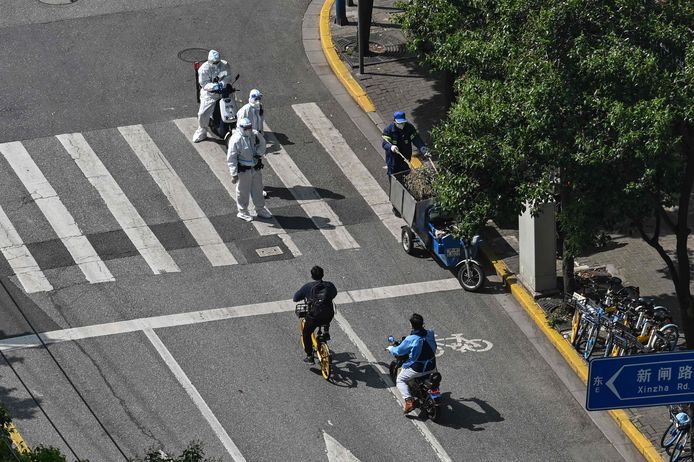White-suit workers spraying mists of disinfectant onto streets, facades and park benches have become a common sight in epidemic China. In Shanghai, the epicenter of the outbreak in China, state media reported that thousands of workers had been organized into teams to disinfect areas. But does this help? Or is it in and of itself harmful?
Any area outside appears to be at risk of being handled by workers using sterilizing machines such as leaf blowers. China’s strict “zero COVID” policy has created an obsession with decontamination. In Shanghai, firefighters were withdrawn from work to be decontamination crews, a local youth movement has recruited volunteers for decontamination teams, and rescue teams from remote parts of China are participating in the project.
But these efforts may be a waste of time, effort and resources. Experts say transmission of the virus through contaminated surfaces is very low. And that disinfecting outdoor areas such as parks and city streets is largely useless, even worse, and may pose a public health hazard.
“Street spraying is kind of an act of building public confidence in the government’s actions,” said Nicholas Thomas, associate professor at the University of Hong Kong. It is a problem when politics dominates and distances itself from science. There is a need for increased efforts to support policy through measures that do not necessarily increase biosecurity as much as the effort to implement them,” says Thomas.
“Clean Theatre”
In a scientific report last year, the US Centers for Disease Control and Prevention stated that scientific studies indicate that any contact with a surface contaminated with Covid-19 has a less than 1 in 10,000 chance of causing infection. Studies such as these have led many to view the explicit focus on disinfection as a “clean theater” rather than an effective disease prevention measure.
In places like Shanghai, where resources are already stretched and the city struggles through weeks of lockdown, deploying volunteers and workers for disinfection purposes can focus on the wrong risks, experts say. “There’s really no role for mass disinfection of outdoor areas, sidewalks and walls. It’s not likely to be contaminated or transmitted through a mucosal surface (such as the eyes, nose, or mouth),” said Dale Fisher, a professor at the National University of Singapore.
Ecosystems
Such work may also have drawbacks, according to Emmanuel Goldman of Rutgers School in New Jersey, who says people can be harmed by exposure to harsh sterilization. While the World Health Organization supports disinfection such as wiping doorknobs in crowded public places, WHO guidelines say that “spraying disinfectants, even outdoors, can be harmful to health and cause irritation or harm to the eyes, respiratory system or skin.”
Earlier in the pandemic, a group of Chinese scientists warned in a letter to Science that the overuse of chlorine disinfectants threatened to pollute the water and even endanger the ecosystems of nearby lakes and rivers.
Unlimited free access to Showbytes? And that can!
Sign in or create an account and never miss a thing from the stars.

